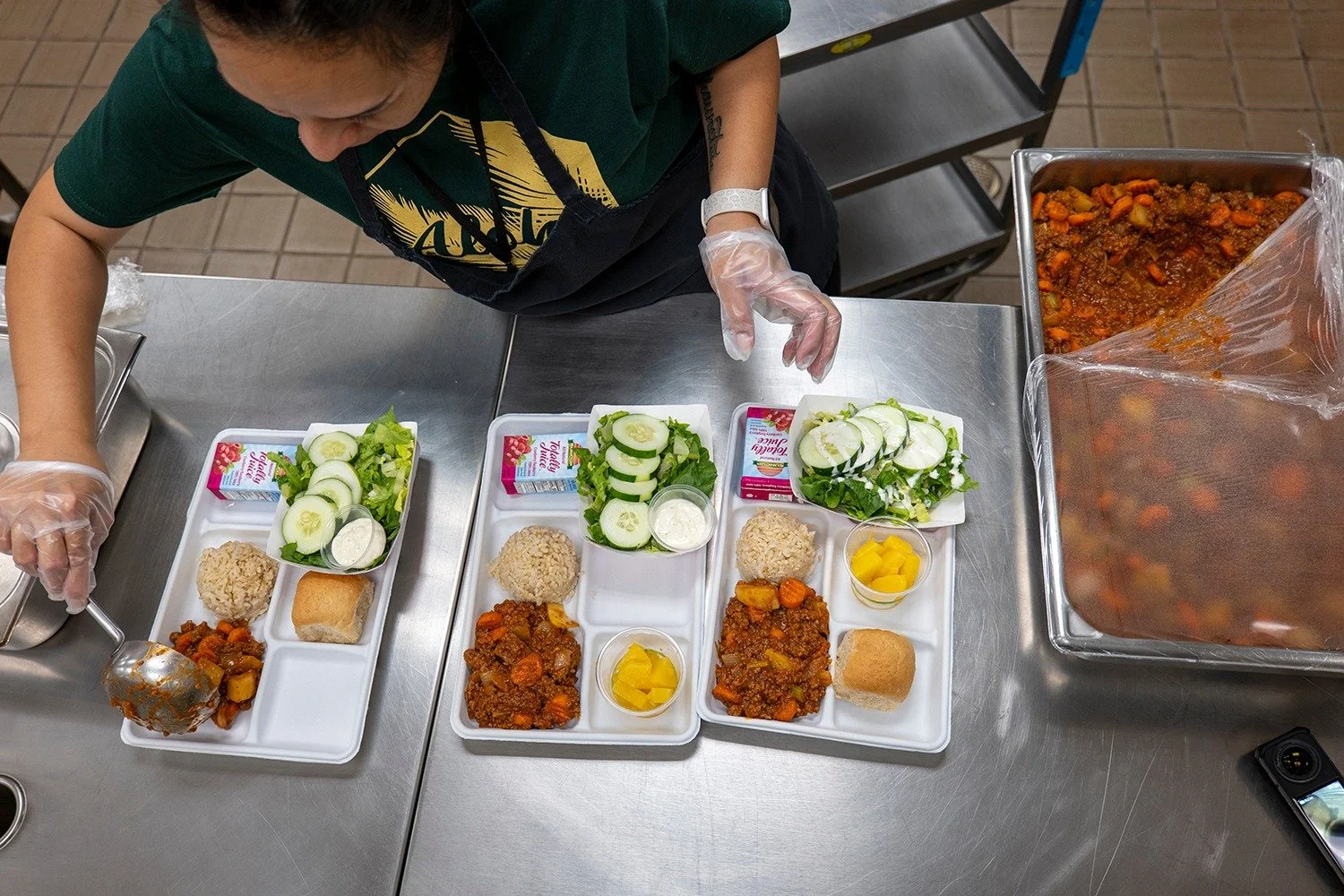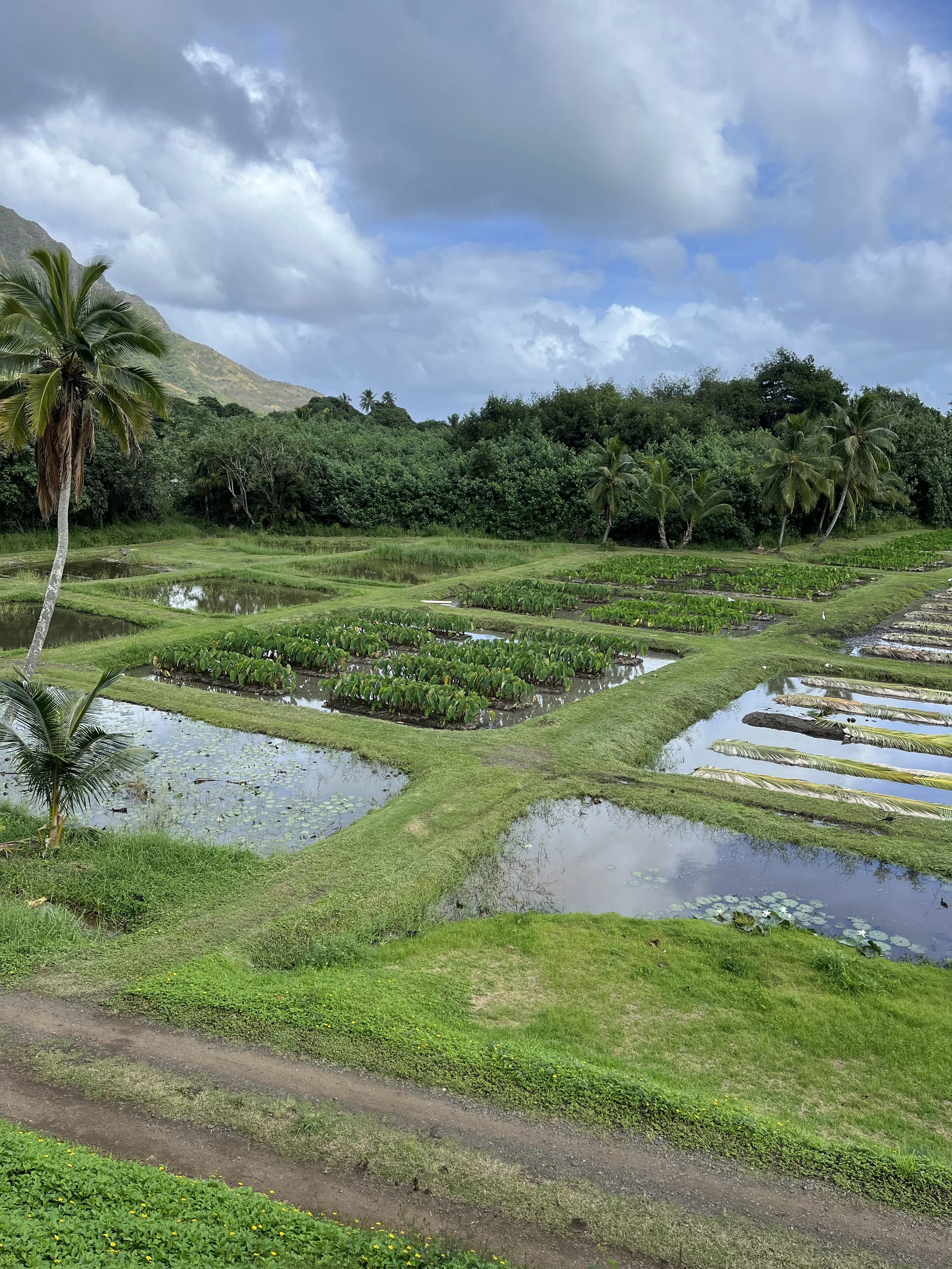
Farm to School Action Plan
A New Era for School Meals in Hawai‘i
The City and County of Honolulu is proud to have collaborated with the Hawai‘i State Department of Education (HIDOE) and the Office of the First Lady to support the development of a Farm to School Action Plan for Central O‘ahu. Centered on the state’s first Regional Kitchen serving the Leilehua, Mililani, and Waialua (LMW) Complex Area, this initiative aims to transform school meals by increasing access to fresh, locally grown food while supporting Hawai‘i’s farmers and advancing our agricultural economy. The plan supports the implementation of Act 137 (2025), which sets statewide goals of locally sourcing 30% of school meal ingredients by 2030 and 50% by 2050.
What is the Plan?
The Farm to School Action Plan was developed by the Hawai‘i Agricultural Foundation, with funding secured by the City and County of Honolulu’s Office of Climate Change, Sustainability and Resiliency through the USDA’s Patrick Leahy Farm to School Grant Program. The City administered the grant and contracted Hawai‘i Agricultural Foundation to lead the plan’s development, with a focus on advancing farm to school efforts in Central Oʻahu and laying the groundwork for statewide replication.
Anchoring the plan is the development of a new regional kitchen in Whitmore Village. Now under construction through a $28 million contract awarded by HIDOE to Hensel Phelps Construction Co., the facility will serve 20 schools in the LMW Complex Area, with the capacity to produce up to 20,000 meals per day. It will occupy 3–4 acres within the Agribusiness Development Corporation’s 34-acre Food Hub project and represents the first in a series of regional kitchens planned across Hawai‘i.
-
The City and County of Honolulu’s role in this effort was to secure federal funding, oversee the grant, and contract Hawai‘i Agricultural Foundation to develop the Action Plan. The Office of Climate Change, Sustainability and Resiliency provided limited support to ensure the plan’s development aligned with USDA requirements.
While the City helped catalyze this planning effort, implementation will be carried forward by HIDOE in partnership with state agencies, local stakeholders, and community organizations.
The City is proud to have played a foundational role in advancing this important initiative and looks forward to future collaboration with HIDOE to support farm to school efforts that enhance student nutrition, strengthen Hawai‘i’s food system, and expand economic opportunities for local agricultural producers on Oʻahu.
-
The plan includes clear objectives, a proposed implementation timeline, and a performance evaluation framework with key metrics. Key Objectives include:
Enhancing Student Nutrition: Providing students with access to fresh, locally sourced meals to improve health outcomes and academic performance.
Supporting Local Farmers: Creating consistent demand for local produce, thereby strengthening Hawaiʻi’s agricultural sector.
Implementing a Regional Kitchen Model: Streamlining meal production processes to increase efficiency and incorporate more local ingredients.
Developing Culturally Relevant Menus: Crafting meal options that reflect Hawaiʻi’s rich cultural heritage and meet student preferences.
Facilitating Farmer Collaboration: Aligning crop production with school meal requirements through effective communication and planning.
Assessing Kitchen Facilities and Staff Training: Evaluating and upgrading kitchen infrastructure and providing training to cafeteria staff to support the regional kitchen model.
Optimizing Procurement Strategies: Simplifying purchasing processes to ensure cost-effective sourcing of high-quality local products.
Promoting Agricultural Education: Integrating farm-to-school programs and gardens into the curriculum to connect students with agriculture and healthy eating habits.
Engaging the Community: Fostering partnerships between schools, families, and local farms to build a supportive network for sustainable food practices.
Ensuring Food Safety and Quality: Implementing rigorous standards to maintain the highest levels of food safety and quality in school meals.
A Collaborative Process
Despite a condensed grant timeline—just two and a half months from mid-September to December 31, 2024—the Hawai‘i Agricultural Foundation worked closely with the HIDOE and engaged more than 500 stakeholders and community members to shape the Farm to School Action Plan. While the grant period concluded at the end of 2024, Hawai‘i Agricultural Foundation continued working with HIDOE to further refine and strengthen the plan beyond that timeframe.
-
17 stakeholder meetings with government agencies, nonprofits, legislators, and education leaders
Two large-scale community outreach events that brought together hundreds of people to learn and connect
Student surveys to inform culturally relevant school menus
Site visits to regional kitchens and school cafeterias in Honolulu, Tacoma, Sacramento, San Antonio, and Seattle
Participation in national convenings such as the Culinary Institute of America’s Healthy Kids Collaborative Conference
-
Hawai‘i State Board of Education (HIDOE)
Hawai‘i State Department of Business, Economic Development, and Tourism (DBEDT)
Agribusiness Development Corporation (ADC)
State of Hawai‘i Department of Agriculture (DOA)
University of Hawai‘i College of Tropical Agriculture and Human Resilience (CTAHR)
Office of Hawaiian Affairs (OHA)
Hawai‘i State Department of Health (DOH)
University of Hawai‘i Community Colleges (UHCC)
Department of Labor and Industrial Relations (DLIR) and its Workforce Development Council (WDC)
Hawaiʻi Farm Bureau Federation (HFB)
Hawaiʻi Farm to School Network (HF2S)
Office of the First Lady Jaime Kanani Green
Office of State Senator Donovan Dela Cruz
Office of State Representative Kirstin Kahaloa

“This is a transformative step forward in ensuring that Hawai‘i’s students have access to fresh, nutritious meals while also strengthening our local agricultural industry.”
- Jaime Kanani Green, First Lady of the State of Hawai‘i
“By connecting our schools directly with local agriculture, we are fostering economic growth and environmental stewardship.”
- Mayor Rick Blangiardi
“Integrating fresh, local produce into our school meals enriches the educational experience and promotes lifelong healthy habits.”
- Keith Hayashi, HIDOE Superintendent


